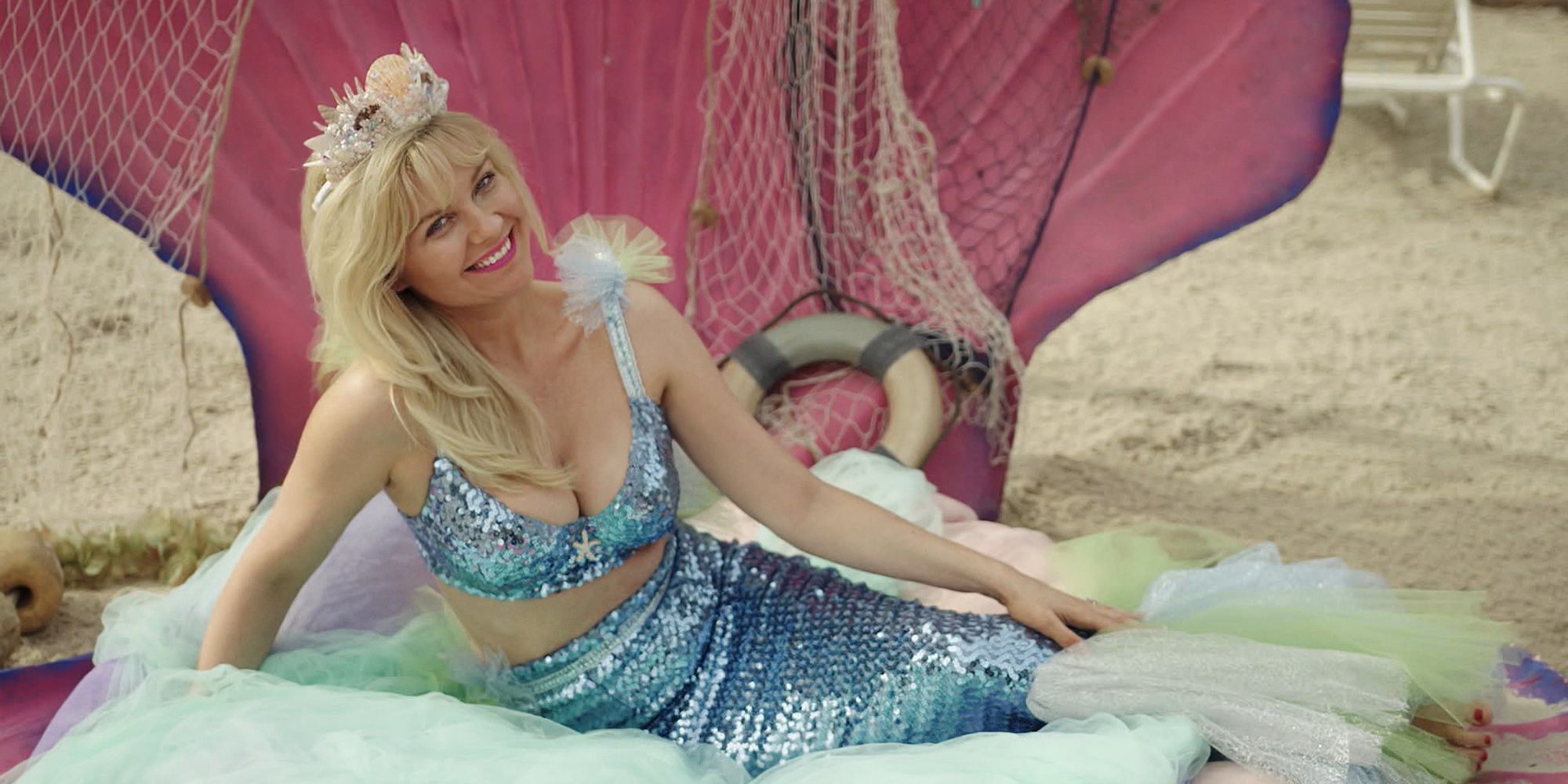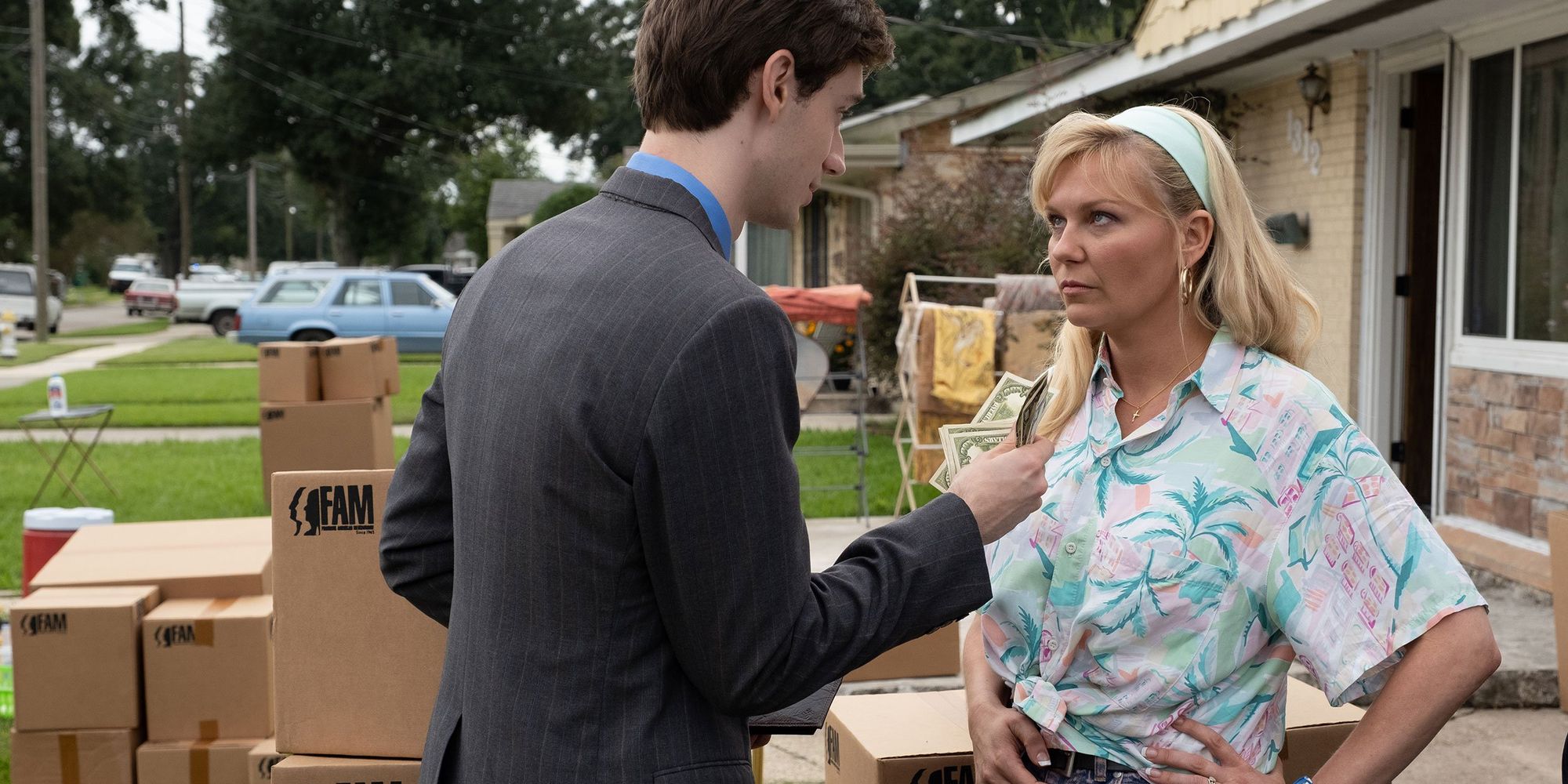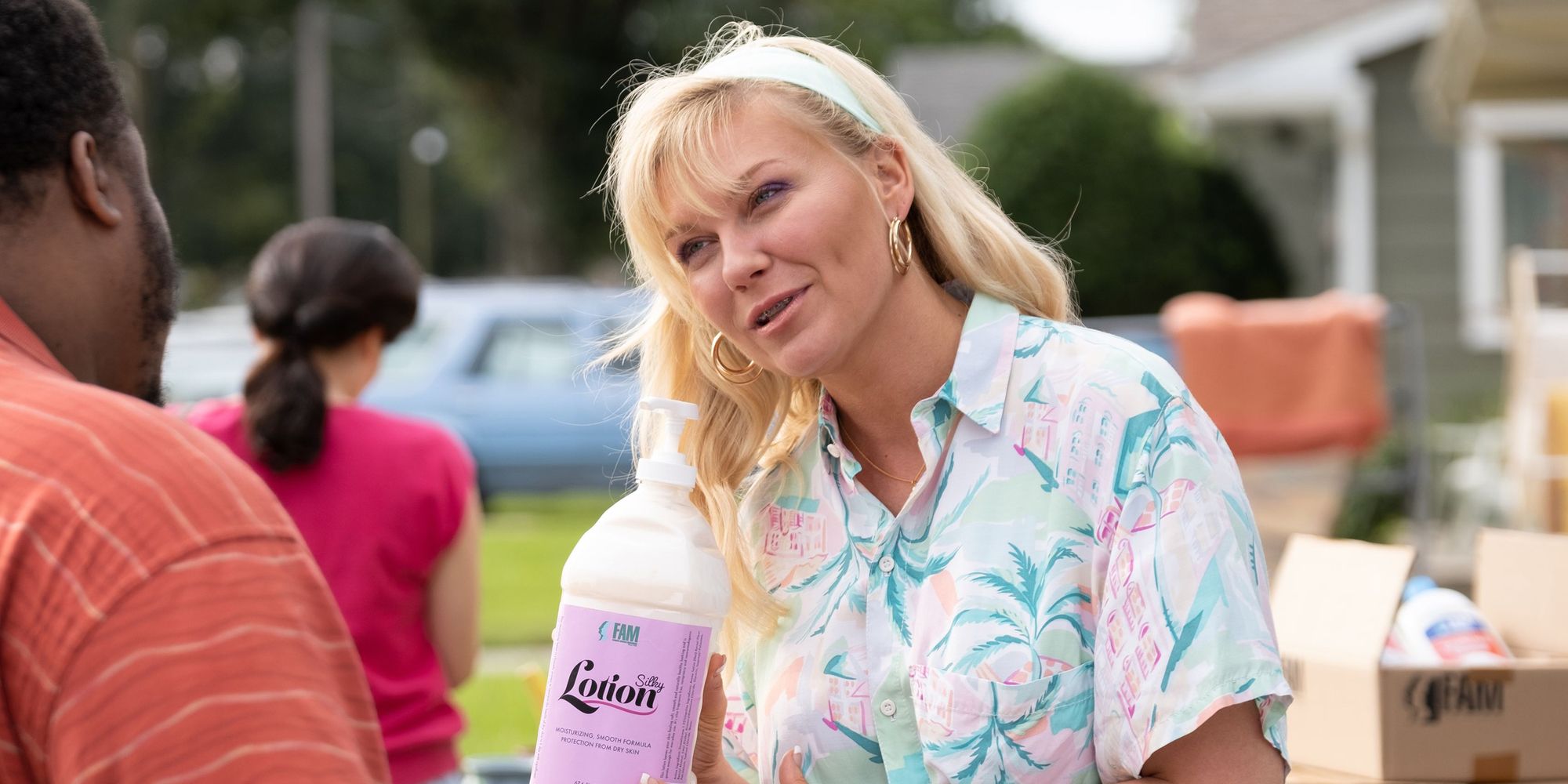The idea that every American is a self-made millionaire waiting to happen is one of the more pernicious side effects of capitalism. It’s also one put on repeat by those looking to exploit other with the misguided assurance that if everyone just works hard and applies themselves, they too can live a life of luxury and absurd excess. But that pull-yourself-up-by-the-bootstraps ethos is often hiding a less-than convenient fact that those very same bootstraps are more like puppet strings being pulled by the entrenched one percent. That is ostensibly the idea behind Showtime’s new pitch-black comedy, On Becoming a God in Central Florida.
Executive produced by and starring Kirsten Dunst, the series is created by Robert Funke and Matt Lutsky, and is produced by George Clooney and Grant Heslov. Dunst stars as Krystal Stubbs, a down-on-her-luck, recently-widowed mother of one whose late husband, Travis (Alexander Skarsgård in a mullet and a deranged smile), was ensnared by the pyramid scheme of an Amway-like retailer, promising him success, wealth, freedom, and above all, his very own helicopter. Travis had a fine job at an insurance company, one that paid the bills, offered his family health insurance, and helped pull his wife out of the cycle of poverty she makes it clear she'll do anything never to return to. But the lure of financial freedom and his own Hollywood ending, as espoused ad nauseam on a collection of self-help tapes by company founder and cultish guru, Obie Garbeau II (Ted Levine), proves too much for Travis, leading him to quit his job against his wife’s wishes.
That decision ultimately costs Travis his life, as he’s literally eaten alive as soon as he enters the wild world of unchecked capitalism and businesses built upon shady pyramid schemes. As it turns out, though, Travis was a cornerstone in a much larger pyramid, one run by Cody (Théodore Pellerin), a true believer in the Garbeau system, mostly because it’s given him a legion of underlings like Travis who’re lining his pockets with cash all while dreaming of one day being slightly richer, just like him. With Travis gone, however, Cody’s would-be pyramid threatens to crumble, and in his desperation he turns to the desperate Krystal to help fix the foundation of his would-be empire.
The series’ first few episodes flirt with a level of bleakness that is likely frighteningly familiar to many people who are one small emergency away from complete financial ruin. Yet somehow, On Becoming a God in Central Florida never succumbs to that sense of hopelessness, even while it relishes in hopping on a bright-pink ATV in search of darker and darker laughs. It’s a tricky balancing act, one that requires the series to embrace a level of absurdity at times — Travis’s death is a perfect example — in order to keep from driving off the same metaphorical cliff on which it has stranded its main character.
Krystal’s desperation is palpable, fueling the show from episode to episode, as she tries in vain to collect her husband’s life insurance or is forced to sell off what’s not being repossessed in order to pay the second mortgage on their house Travis never told his wife about. Through it all, Dunst plays Krystal with a pageant-queen smile and steely determination that’s equally entertaining whether she’s dancing for a pre-teen in an elaborate puppet contraption or poaching alligators in the middle of the night to feed what’s left of her family and exact a little payback on the system (and ecosystem) that ultimately claimed the life of her husband.
As the title suggests, it’s not long before Krystal is caught up in the same scheme her husband was, though she’s entering into it with a different goal initially. Krystal’s gradual turn toward the Garbeau system isn’t like that of Cody or any one of his many sycophantic, Kool-Aid-drinking underlings. Instead, the series presents Krystal’s introduction like a poison pill in company punch bowl. It’s the early 90s Amway equivalent of Breaking Bad, one that makes good on the show’s supporting cast as Cody and Ernie (Mel Rodriguez), the unhappy supervisor at the water park where Krystal works, as well as others in the Garbeau system, like Julie Benz, Sharon Lawrence, and Mary Steenburgen, all get caught up in Krystal shrewd attempts to boot-strap her way up the corporate pyramid.
The result is a pitch-black comedy that offers Dunst one of her best roles in recent memory and gives Showtime a smart, subversive new series that has something to say about the pursuit of wealth and success simply for the sake of more wealth and success. It’s also a particularly sharp portrait of how many young people are living today — overworked and underemployed, all in a futile attempt to get ahead that only serves to make the rich richer. In the end, Krystal’s con of a cultish pyramid scheme becomes a new version of the American Dream most people watching can buy into.
On Becoming a God in Central Florida premieres Sunday, August 25 @10pm on Showtime.



